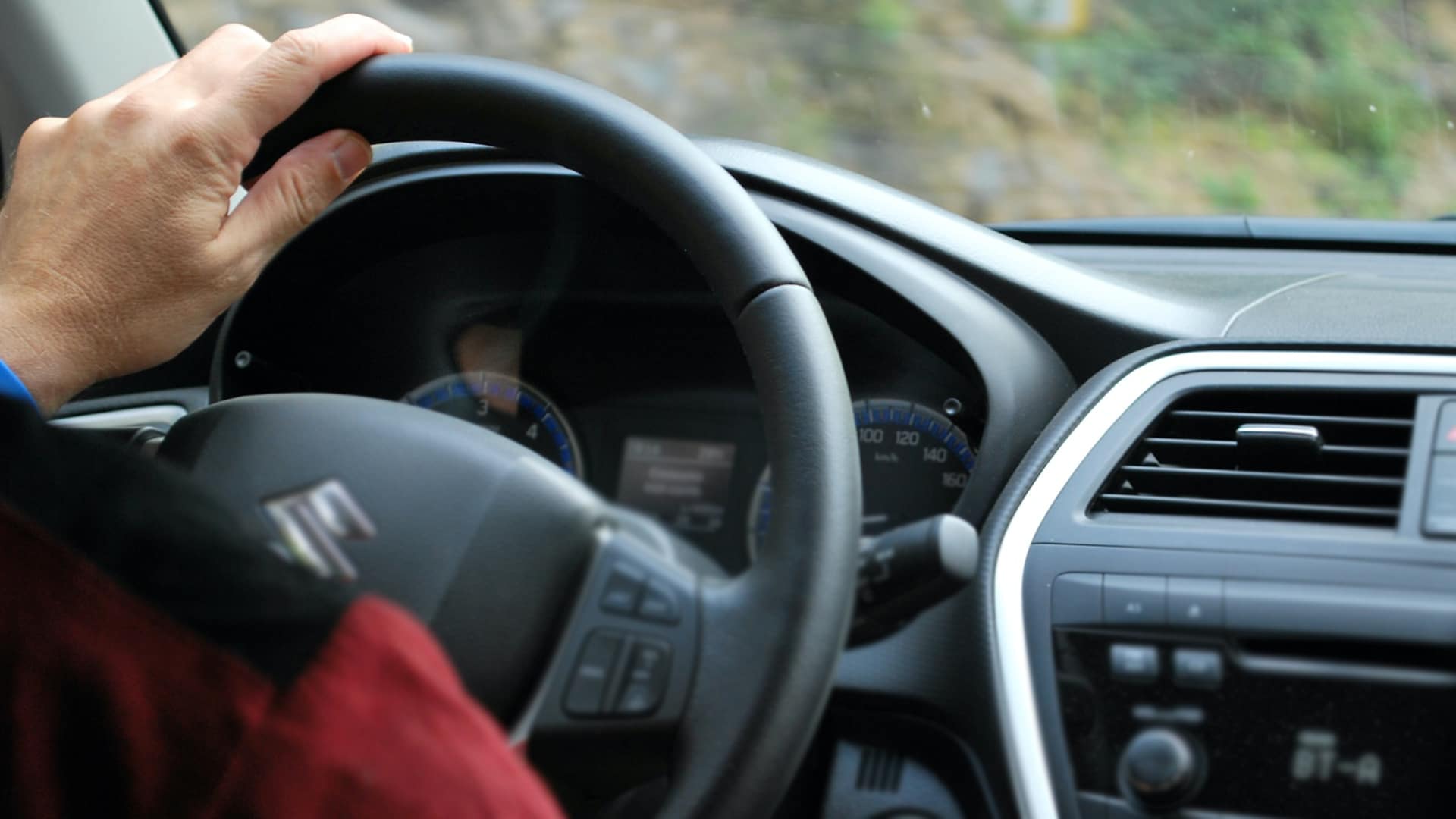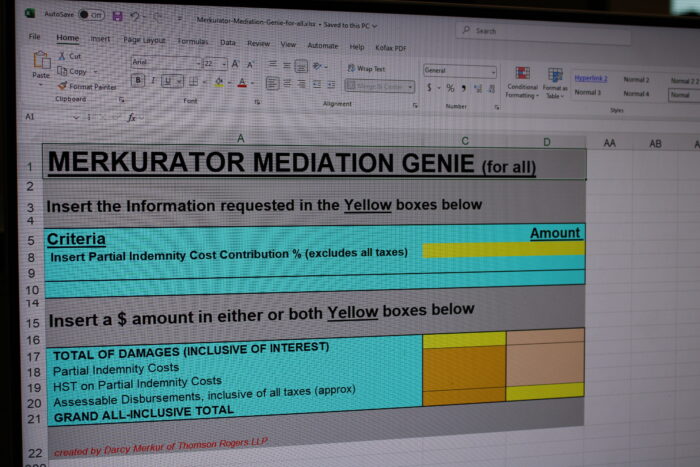Don’t Let the Clock Run Out On Your Motor Vehicle Accident Injury Claim
Author(s): Robert M. Ben*
June 1, 2021

If you are seriously injured in a motor vehicle accident in Ontario because of someone else’s fault or negligence, you may be entitled to compensation for your pain and suffering, extraordinary health care and other expenses, and your loss of income. There are time limits to make such claims. If those time limits are ignored you can lose your right to compensation altogether.
General Two-Year Limitation Period
A claim for compensation is made by way of a civil lawsuit against the at-fault party or parties or, in some cases, your own automobile insurer (i.e., if there is an uninsured, unidentified, or underinsured driver who caused or contributed to the accident).
Generally, you must start your lawsuit by the second anniversary of the day your claim was “discovered.” This is commonly referred to as the “two-year limitation period.”
When Does the Clock Start to Run On My Motor Vehicle Accident Lawsuit?
The two-year limitation period starts to run once your claim is “discovered.” What does that mean?
Once you know or reasonably ought to have known (i.e., through the exercise of reasonable diligence) that you suffered an injury because of someone else’s fault or negligence and that you may be entitled to compensation for your injuries. In most cases, this will be the date of the car accident itself. There are several exceptions, however.
Claims By or Against Deceased Persons
There are special and strict time limits for legal claims started on behalf of or against deceased persons. These time limits apply regardless of when the claim was discovered. If a person is killed in a motor vehicle accident (or dies from their injuries later) the estate must start any lawsuit for damages within two years of the date of death. As unfair as it seems, the same is true where the at-fault person being sued dies.
Exceptions For Incapable Persons And Minors
If you are incapacitated due to your physical, mental, or psychological condition, the limitation period may not start to run until you regain that capacity. For example, an injury victim who is comatose in hospital, or incapacitated by pain or medication, or who has suffered a brain injury or psychological condition that affects his or her cognitive and decision-making abilities, may be able to establish a temporary suspension of the limitation period.
The two-year limitation period does not start to run against minors until they turn 18 years of age unless someone has agreed to act as their Litigation Guardian (formally take responsibility for investigating or pursuing a minor’s claim, including instructing a lawyer on the minor’s behalf) in which case the two-year limitation period begins from the date the Litigation Guardian assumes that role.
Threshold Injury
The start of the two-year limitation period may, in some circumstances, also be delayed until you know that your injury meets the legal threshold for starting a lawsuit.
In Ontario, you do not have a right to sue for personal injury damages (except loss of income and some other limited pecuniary losses) arising out of a motor vehicle accident unless your injuries result in a “permanent and serious impairment of an important physical, psychological or mental function” based on the evidence of a medical doctor.
In some cases, this knowledge is only discoverable after medical imaging like an x-ray or MRI confirms a permanent and disabling impairment of function. In other cases, you might initially believe your injuries are minor and expect to fully recover from them with some rehabilitation only to later learn that your condition has become chronic and disabling.
It is important to know that delayed knowledge of a threshold injury will only postpone the running of the limitation period against owners or occupants of motor vehicles involved in the accident, or persons present at the scene. It will not apply to claims against other parties, such as municipalities and the provincial government.
Motor Vehicle Accident Injury Claims Against Municipalities And The Province
If a motor vehicle accident is caused even in part by a municipality’s negligence (failing to keep the road free of snow and ice, negligent road design or other defects, etc.) any claim against the municipality must be started within the two-year limitation period. There is, however, an added strict requirement that you first give the municipality notice of a potential claim within 10 days of the accident itself. Failure to do so can be fatal to your claim unless the court finds you have a reasonable excuse, and the municipality is not prejudiced by the late notice.
If your claim is against the provincial government (i.e., if the accident happens on a provincial highway), you must give notice of the claim with sufficient particulars at least 60 days before you start your lawsuit.
Unidentified/Uninsured/Underinsured Drivers
If you are injured in a motor vehicle accident that was caused by an unidentified driver (a hit-and-run for example), an uninsured driver, or an underinsured driver (one who does not have enough insurance to compensate you for your damages and you have your own automobile insurance in a higher amount), you may be able to sue your own automobile insurance company for compensation.
For claims involving an unidentified driver the two-year limitation period to make a claim for compensation from your own insurance company starts to run from the date you knew or reasonably ought to have known that an unidentified driver caused or contributed to the accident.
Likewise, for claims involving an uninsured driver, the two-year limitation period starts when you know or with reasonable diligence ought to have known that the driver is uninsured.
For claims involving an underinsured driver, the two-year limitation period only starts to run on the date you demand payment from your own automobile insurer for the shortfall.
The Ultimate Limitation Period
Because of the discoverability rule, it is possible that a personal injury claim could be brought many years after the motor vehicle accident. However, the law imposes an “ultimate” limitation period of 15 years.
In the case of a motor vehicle accident, no lawsuit can be commenced after the fifteenth anniversary of the day of the accident regardless of when it was discovered (subject to extensions for mentally incapable people and minors, discussed above).
Laws change from time to time and may or may not apply depending on the particular facts of your case. If you are injured in a motor vehicle accident you should promptly seek legal advice from an experienced personal injury lawyer.
Thomson Rogers offers free consultations so please feel free to reach out to us at any time. We are here to help.
Robert M. Ben is a personal injury lawyer and a partner at Thomson Rogers. Robert is listed in peer-reviewed publications – Lexpert® and The Best Lawyers™ in Canada and is ranked AV preeminent in Martindale-Hubbell ®. Robert can be reached at 416-868-3168 or by EMAIL.
For Thomson Rogers updates please subscribe to our email list here.
Share this





